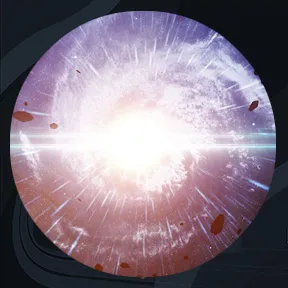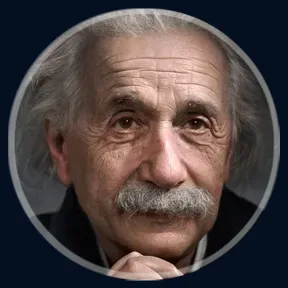Before the Big Bang | How to Get a Universe From Nothing?
Quantum Creation - what came before the big bang - the mechanism of a universe out of NO-thing - no matter, no space, and no time.
Ancient Greek cosmologist Parmenides said “Nothing comes from nothing.” He was likely referring to the law of conservation of energy, that no new energy can be created. This is true and is a scientific fact even today. So how could the Universe come from nothing?
Since the discovery of quantum physics and relativity, we have discovered a flaw in this argument that allows the creation of something from truly nothing. The Universe indeed had a beginning about 13.8 billion years ago, with the Big Bang. But what was there before the Big Bang? How did the universe come about from nothing. The flaw that we have uncovered in Parmenides original argument of “nothing comes from nothing” is that gravity has negative energy. And matter has positive energy.
In a closed universe, a spontaneous splitting of 0 energy into an equal amount of positive energy and negative energy would not violate any conservation laws, because no new energy would have been created. And in quantum mechanics, anything that is not forbidden by conservation laws has a non-zero probability of occurring.
But then we did not start with nothing. We started with the vacuum of physics, which has virtual particles that come in and out of existence, over very short periods of time. it has a weight and can be scientifically measured. So this is not nothing.
So a more fundamental question is can a universe really be created with truly nothing – that means no-thing – no space, no matter, no time, no nothing? To answer this question, let’s work our way back from where we are now.
If you solve Einstein’s equations for a universe like ours, you discover that it describes a universe that is either contracting or expanding. At the beginning of the big bang, it has a finite size, below which you cannot go any smaller. How does an explosion like the big bang occur from this finite size universe? In late 1979, a Stanford physics postdoc named Alan Guth offered an explanation for this bang or explosion. He showed that using the theories in particle physics, at extremely high energies — much higher than we could ever create in a lab — a special state of matter turns gravity upside down, causing it to be repulsive rather than an attractive force.
A patch of space that contains even a tiny bit of this unusual matter, much smaller than the size of an atom, could repel itself so violently that it would blow up. And expand to a huge size. This would have happened for a very short time, a tiny fraction of a second, because this repulsive force quickly decays into the attractive force of gravity we see today. But this short period of time is enough to cause the “bang” in the big bang.
So now we are at the Big Bang. We have a finite size universe with extremely high energy density that exploded in a brief inflationary period, and caused the big bang. Now, let’s go back further…the question now is how did a zero-size universe (a nothing) become Guth’s finite size universe.
Physicist Alexander Vilenkin of Tufts University published a paper in 1984 that showed how this was possible using currently known laws of quantum mechanics. And he originated the idea of something called Quantum Creation. He showed that there is some energy barrier that the zero-size universe had to overcome in order to become finite size. This is where a phenomenon called quantum tunneling comes into play. It turns out that there is a probability, not very large, but a non-zero probability.
Quantum tunneling is a real phenomenon that can be measured and is known to exist. Quantum mechanics shows that particles are waves of probabilities – and these waves have a non-zero probability of showing up spontaneously outside a barrier. This is how for example, an electron or even atom behind a barrier has a small probability of showing up on the other side of the barrier. Our zero-size universe can, through the process of quantum tunneling, become a finite size universe.
And once it does that, then Guth’s cosmic inflation occurs, triggering the Big Bang. Then Einstein’s laws take over, and the universe’s expanding journey begins. And 13.8 billion years later, we observe the universe as we do today. So quantum mechanics gets you from zero size to a finite size, and then to the Big Bang. And then general relativity can get you from there to where we are today.
And what triggered all this? In quantum physics, events do not necessarily have a cause, just some probability.
So there is some probability for the universe to pop out of “nothing. If it is true, our existence had the humblest beginning of all - from nothingness itself.
But you are still not starting with nothing, because you have to start with the laws of quantum mechanics. Where did these laws come from?

















































